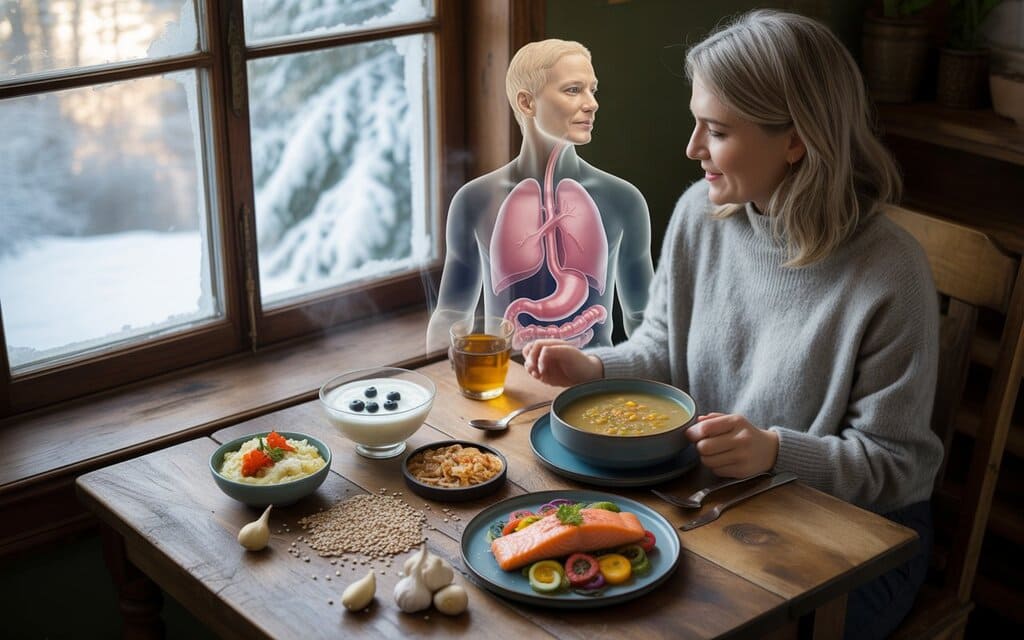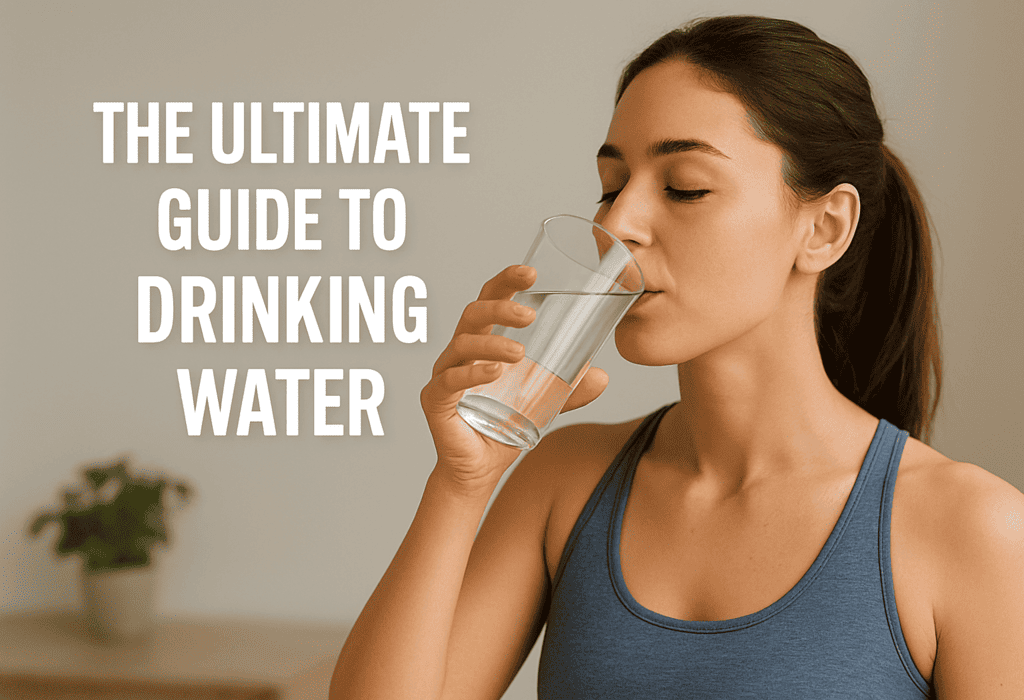
Introduction
Water is the essence of life, making up about 60% of the human body and serving as the foundation for nearly every physiological function. From supporting digestion to maintaining skin glow and brain performance, hydration is crucial for sustaining health and vitality. Despite its undeniable importance, many people still fail to meet their daily water intake needs, often replacing it with caffeinated drinks or sugary sodas.
This comprehensive guide explores the health benefits of drinking water, the optimal timing for hydration, and the etiquette of water consumption in Islam. Backed by recent medical studies from leading researchers in Asia, America, and Europe, we will also highlight daily intake recommendations, practical hydration tips, and frequently asked questions.
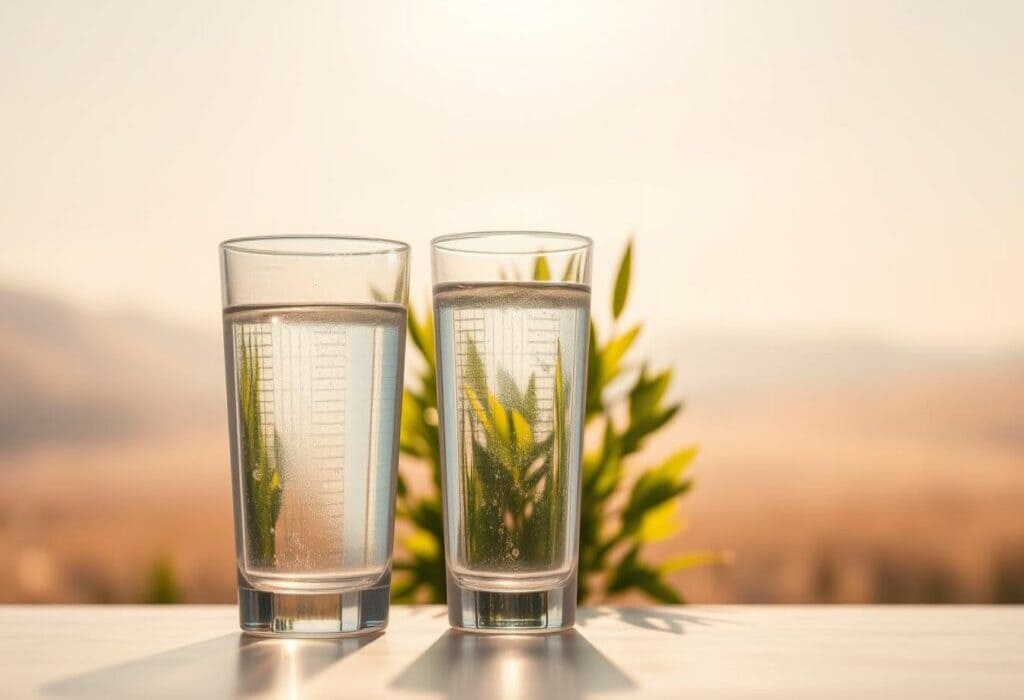
🌟 Key Benefits of Drinking Water
1. Enhances Skin, Hair, and Dental Health
- Skin Health: Proper hydration maintains skin elasticity and prevents dryness. A 2022 study published in the Journal of Clinical Medicine found that individuals who increased their water intake had improved skin smoothness and reduced wrinkle depth (Carruthers et al., 2022).
- Hair Vitality: Water nourishes hair follicles and helps deliver essential nutrients, leading to shinier and stronger strands. Dermatologists in South Korea have emphasized hydration as a key factor in preventing hair brittleness.
- Dental Protection: Drinking water washes away food particles and bacteria, reducing the risk of cavities and gum disease (American Dental Association, 2021).
2. Supports Vital Bodily Functions
Water is the body’s transport system, critical for:
- Digestion: Assists in the breakdown and absorption of nutrients.
- Circulation: Helps transport oxygen and nutrients to cells.
- Temperature Regulation: Maintains stable body temperature through sweating and respiration.
The Mayo Clinic confirms that even mild dehydration can hinder these processes and lead to fatigue, dizziness, and impaired concentration.
3. Boosts Cognitive Performance
The brain is composed of about 75% water. Even a 2% drop in hydration levels can impair focus, memory, and alertness (Harvard Medical School, 2020). Studies from Europe (Popkin et al., Nutrition Reviews) show that consistent hydration improves cognitive function and mood, particularly in children and older adults.
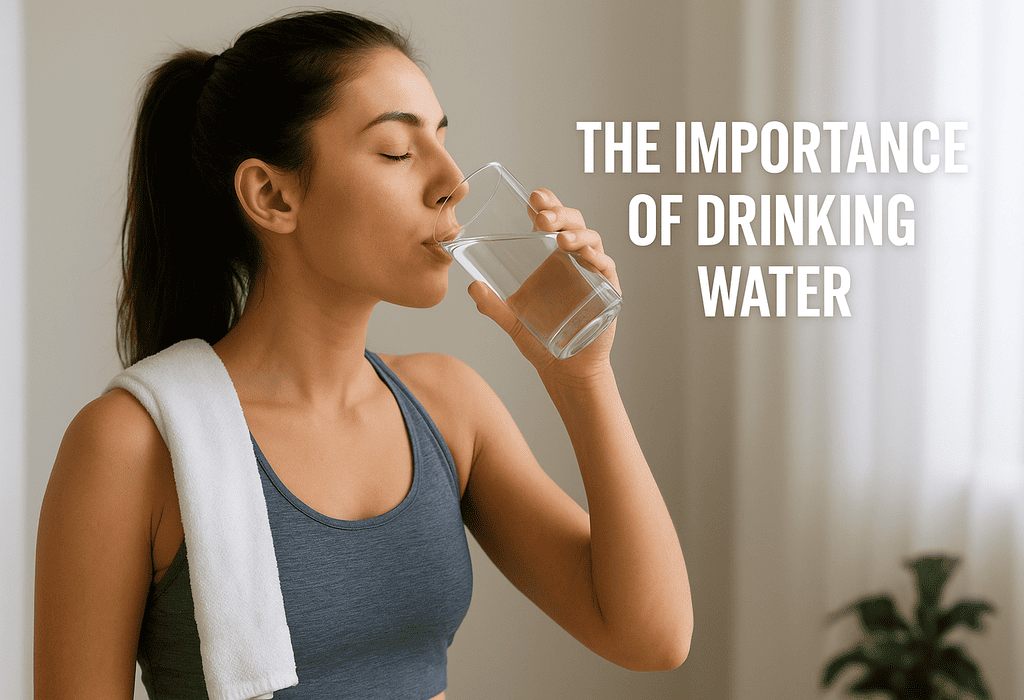
⏰ Optimal Times to Drink Water
Hydration is not just about how much you drink but also when you drink. Research suggests that timing can maximize the health benefits of water consumption.
| Time of Day | Health Benefits | Scientific Insight |
|---|---|---|
| Upon Waking | Jumpstarts metabolism and hydrates after sleep | Healthline, 2023 |
| Before Meals | Aids digestion, promotes satiety, supports weight management | Cleveland Clinic |
| During & After Exercise | Replenishes sweat loss, aids muscle recovery | American College of Sports Medicine |
| Mid-Afternoon | Prevents energy slumps, boosts focus | Premium Waters |
| Before Bed (small amount) | Maintains hydration overnight (avoid large amounts to prevent frequent urination) | Sleep Foundation |

🕌 Islamic Etiquette of Drinking Water
Islam not only emphasizes the physical benefits of water but also integrates it into spiritual practice. Prophet Muhammad (peace be upon him) provided valuable guidance on etiquette (Adab) when drinking water.
- Say “Bismillah” Before Drinking – Begin with the name of Allah. (Sunan Ibn Majah)
- Drink in Three Sips – The Prophet recommended drinking water in three breaths instead of gulping (Sahih Muslim).
- Avoid Breathing into the Vessel – Prevents contamination and aligns with cleanliness.
- Sit While Drinking – Although permissible to drink standing, sitting is preferred. (Sunan Abi Dawud)
- Say “Alhamdulillah” After Drinking – Express gratitude upon finishing.
These etiquettes highlight that drinking water is both a health necessity and a spiritual act of gratitude.
📊 Daily Water Intake Recommendations
The National Academies of Sciences, Engineering, and Medicine (U.S.) provide general guidelines:
- Men: ~3.7 liters (125 ounces) per day.
- Women: ~2.7 liters (91 ounces) per day.
These totals include all fluids and water-rich foods (like fruits and vegetables).
Factors That Influence Water Needs
- Climate: Hot and humid environments increase fluid loss.
- Physical Activity: Athletes may need 1–2 liters more daily.
- Age: Older adults often have reduced thirst perception.
- Pregnancy & Breastfeeding: Require higher water intake.
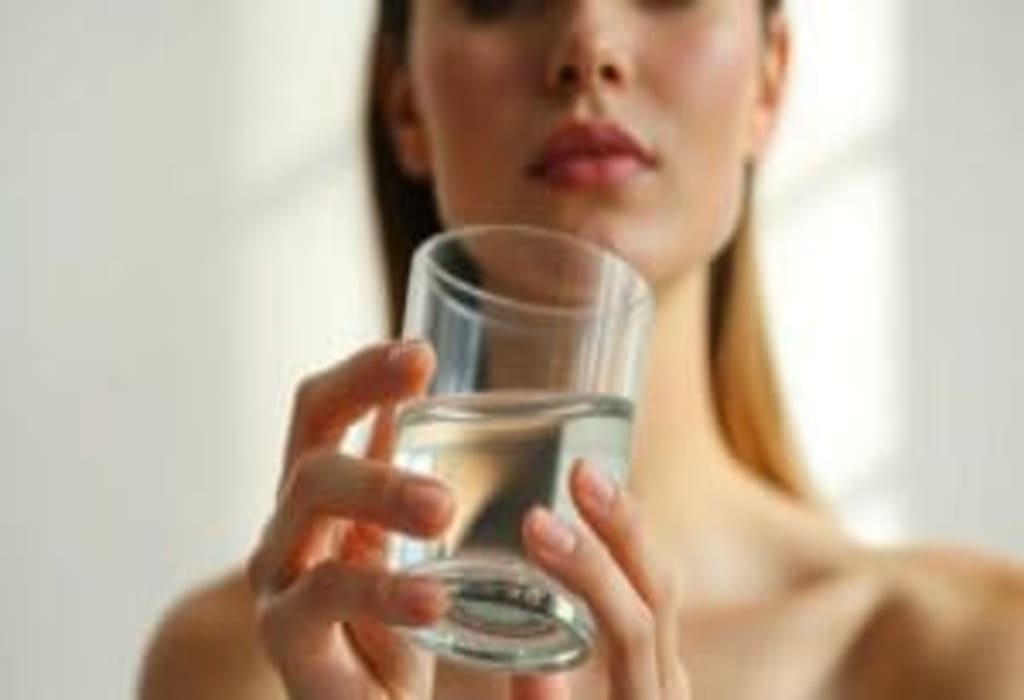
💡 Tips to Increase Water Consumption
- Infuse Water Naturally – Add lemon, cucumber, or mint for a refreshing flavor boost (UC Davis Health).
- Use a Reusable Bottle – Keeps hydration accessible and eco-friendly.
- Set Hydration Reminders – Use apps or alarms for scheduled sipping.
- Eat Water-Rich Foods – Include cucumbers, melons, and oranges.
- Establish Routine – Drink at specific times, such as upon waking and before meals (Verywell Health).
🧪 Recent Scientific Studies on Water Intake
- United States: Harvard researchers (2020) linked consistent hydration to lower risk of kidney stones and improved cardiovascular health.
- Europe: A study published in Nutrients (2021) revealed that hydration supports improved cognitive performance in children.
- Asia: Japanese scientists (Osaka University, 2022) found that people who maintain proper hydration have a reduced risk of stroke and high blood pressure.
✅ Conclusion
Water is the foundation of health and wellness. From improving skin and hair vitality to supporting digestion, circulation, and brain function, hydration is a key pillar of well-being. Scientific research across continents confirms that timely water intake enhances both physical and mental performance.
For Muslims, following the Islamic etiquette of drinking water transforms hydration into an act of worship and gratitude, reminding us that caring for our bodies is part of faith.
By applying these practices—drinking at the right times, meeting daily intake needs, and practicing Sunnah manners—you can experience improved energy, sharper focus, better digestion, and spiritual mindfulness.
Make hydration a daily priority, and let every sip nourish both your body and soul.
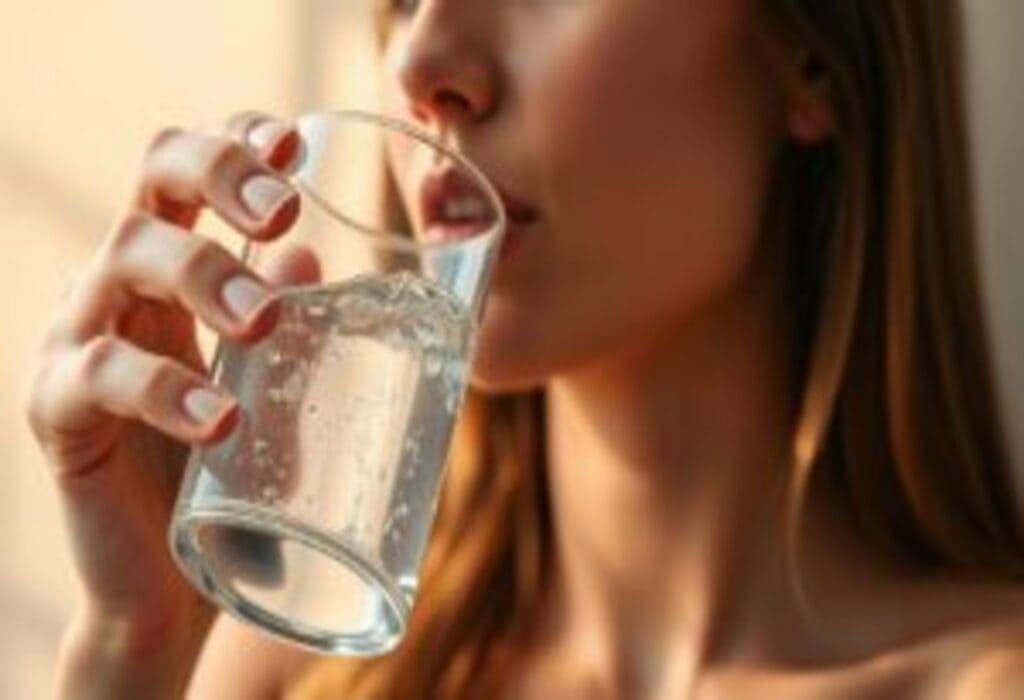
❓ Frequently Asked Questions
Q: What are the signs of dehydration?
A: Dry mouth, fatigue, dizziness, dark urine, and decreased urination.
Q: Can drinking too much water be harmful?
A: Yes. Excessive intake may cause hyponatremia (low sodium levels). Balance is key.
Q: Does drinking water help with weight loss?
A: Drinking water before meals can enhance satiety and reduce calorie intake.
Q: Is it better to drink cold or warm water?
A: Both have benefits: cold water refreshes, warm water aids digestion.
Q: How does hydration affect kidney function?
A: Adequate water supports the kidneys in filtering toxins and reduces the risk of kidney stones and UTIs (National Kidney Foundation).
📚 References
- Harvard Medical School. (2020). Hydration and health.
- National Academies of Sciences, Engineering, and Medicine. (2020). Dietary Reference Intakes for Water.
- Carruthers, A. et al. (2022). Hydration and skin health. Journal of Clinical Medicine.
- American Dental Association. (2021). Water and oral health.
- Popkin, B.M. et al. (2010). Water, hydration, and health. Nutrition Reviews.
- Osaka University. (2022). Hydration and cardiovascular outcomes in Japanese adults.
- IslamicFinder & Sunnah References – Hadith collections on drinking water etiquette.
